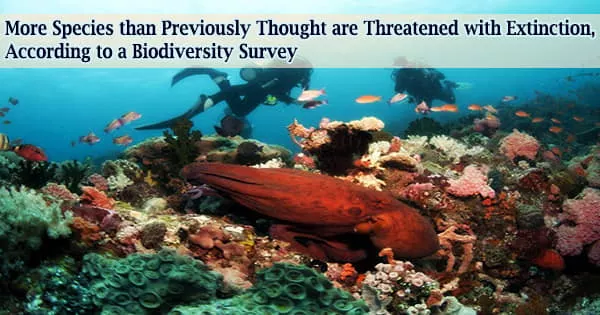Biodiversity is a complicated subject due to the millions of plant and animal species that are dispersed over all of the world’s biomes. To bring the global threats to biodiversity into focus, experts from around the world must collaborate across national boundaries.
How can scientists communicate their results to create a shared comprehension of the dangers and chances for action?
By combining the perspectives of thousands of biodiversity experts from around the world, a new survey that was just published in the journal Frontiers in Ecology and the Environment under the direction of an associate professor at the University of Minnesota Forest Isbell aims to close some of the knowledge gaps.
Scientists researching biodiversity in 187 nations submitted 3,331 replies to the survey, including all significant clades of species, habitats, and ecosystems.
“While considering the types of species and ecosystems they know best, experts estimated that about 30% of species have been globally threatened or driven extinct since the year 1500. Experts also acknowledged substantial uncertainty around their estimates, with perhaps as few as 16% or as many as 50% of species threatened or driven extinct over this time.” said Isbell.
Since biodiversity is highly regional in nature, the attempt of our study to bring together the opinions of regional experts from around the world is unprecedented. From the perspective of social and cultural diversity and inclusiveness, even if they are not necessarily complete, I believe we have presented certain suggestions for future international policy discussions.
Akira Mori
The survey also found significant demographic and geographic variations in the opinions and projections of experts.
“This paper includes the perspectives of a very wide range of experts and allows us to assess less known taxa as well as give a voice to underrepresented experts in the global literature. Experts who identify as women and who are from the Global South have provided significantly higher estimates for past biodiversity loss and its impacts.” said co-author Patricia Balvanera at the University of Mexico. “Also, experts who identify as women disproportionately study the taxa that experts estimate are most threatened.”
In order to ensure that a variety of perspectives are taken into account when conducting global biodiversity assessments, setting global biodiversity goals and targets, and making the new policies and other transformative changes required to conserve biodiversity, the researchers encourage biodiversity experts to use these results to learn how their own perspectives differ from those of other experts.
“Since biodiversity is highly regional in nature, the attempt of our study to bring together the opinions of regional experts from around the world is unprecedented,” said co-author Akira Mori of the University of Tokyo in Japan.
“From the perspective of social and cultural diversity and inclusiveness, even if they are not necessarily complete, I believe we have presented certain suggestions for future international policy discussions.”
One in three species that may otherwise be vulnerable or extinct by 2100, according to experts, could no longer face extinction if significant increases in conservation spending and efforts were made now.
















